What Should High School Graduates Know And Be Able To Do?
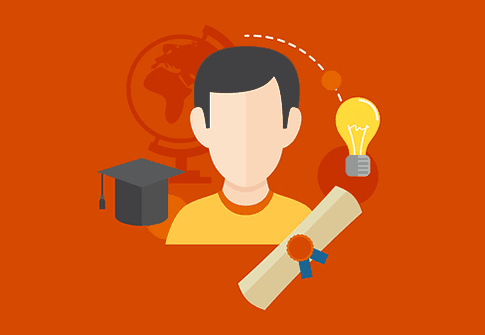
There has been lots of debate about K-12 learning expectations. But the conversations have focused almost entirely on reading, writing, and math. While common expectations in the basics are a good start, they don’t fully describe what high school graduates should know and be able to do.
States and districts have long used graduation requirements as a concrete expression of the aims of K-12 education. But, in most states, this century old relic of courses and credits simply outlines minimum requirements and doesn’t inspire or communicate a focus. Entirely missing are the skills and dispositions most important for success.
Several strands of work including workforce preparedness, character development, social emotional learning, and mindset, now inform school districts and networks. However, it remains challenging to describe the aims and measures of a rigorous well-rounded education (as noted in this discussion from Madison Schools).
The board of Danville Schools, a small district south of Lexington, KY embraced five goals that include key outcomes, global preparedness and excellence in communication, as well as process priorities, powerful learning experiences and at least a year of growth for every student. The school board described Danville Diploma this way:
- Intentional experiences to equip students with skills to persevere when faced with challenges; valuing and exercising creativity; discovery of how critical thinking skills are used across disciplines; becoming a functioning member of a team; exercising effective communication and presentation skills; understanding the importance of taking initiative; learning about various aspects of leadership and developing those skills; adaptive and problem solving; managing time and creating a plan for accomplishing a task or goal; knowing how to find reliable and accurate information; and analyzing, synthesizing and making inferences from data
- A requirement to demonstrate readiness to move to the next level at specific transition points (grades 5, 8, and 11) by demonstrating growth and development as a learner and productive, contributing member of the school and larger community
- Meaningful, in-depth experiences for students with service learning and career interests as well as on-going opportunities to experience and explore both visual and performing arts
- Opportunities each year for students to plan for successful pathways for both college and career, starting no later than fifth grade, with the purpose of being exposed to as many options as possible
- A requirement to take either an Advanced Placement (AP) or college-level course and the opportunity to earn career certification
- Opportunities for students, beginning in kindergarten, to become conversant in one language other than English or their native language, with the chance to explore others
- Learning through meaningful projects and taking part in meaningful processes to develop deeper understandings
- Opportunities to become financially literate, both on a personal level and within the larger economy
- An understanding of using social media responsibly including possible consequences when appropriate judgment is not utilized; and
- Development of what it means to be a responsible citizen, and a deep sense of connection to the Danville community.
That’s a great set of graduation requirements! It includes productive habits of mind, competency-based progression, college and career preparation, financial and digital literacy, service learning and preparation for citizenship. The board wants active learners. They believe, “Education works best when students and families are full and active partners in defining the challenges and opportunities they want to tackle.”
In 2009, Kentucky signaled support for the career preparation framework of the Partnership for 21st Century Skills. Nineteen states are now partners in fusing the 3Rs with the 4Cs.
The 4Cs. The “Learning & Innovation” skills have some to be known as the 4Cs: critical thinking and problem solving; creativity and innovation; communication and collaboration. A group of districts working with EdLeader21 embrace the 4Cs in their goals. Following are three examples of how leading districts express their student learning goals:
Virginia Beach City Public Schools
- Critical and Creative Thinkers, Innovators, and Problem Solvers
- Effective Communicators and Collaborators
- Globally Aware, Independent, Responsible Learners and Citizens
Dysart USD, Arizona
- Effective communicators
- Critical and creative thinkers
- Informed problem solvers and decision makers
- Responsible leaders
- Productive citizens
- Communicator
- Collaborator
- Ethical and Global Citizen
- Creative and critical thinker
- Goal directed and resilient individual
Deeper Learning. Building on the P21 work, the Hewlett Foundation’s Deeper Learning competencies are gaining traction. They add metacognition and self-direction and mindset to the list of knowledge, skills and dispositions necessary to succeed in college, career and civic life:
- Master core academic content. Students develop and draw from a baseline understanding of knowledge in an academic discipline and are able to transfer knowledge to other situations.
- Think critically and solve complex problems. Students apply tools and techniques gleaned from core subjects to formulate and solve problems. These tools include data analysis, statistical reasoning, and scientific inquiry as well as creative problem solving, nonlinear thinking and persistence.
- Work collaboratively. Students cooperate to identify and create solutions to academic, social, vocational and personal challenges.
- Communicate effectively. Students clearly organize their data, findings and thoughts in both written and oral communication.
- Learn how to learn. Students monitor and direct their own learning.
- Develop academic mindsets. Students develop positive attitudes and beliefs about themselves as learners that increase their academic perseverance and prompt them to engage in productive academic behaviors. Students are committed to seeing work through to completion, meeting their goals and doing quality work, and thus search for solutions to overcome obstacles.
Big Picture Learning is a network of student-centered schools recognized by the Hewlett Foundation for exhibiting Deeper Learning. Big Picture schools embrace learning goals that, “Offer a framework for looking at the real-world knowledge and abilities necessary to being a successful, well-rounded person.” The five goals include:
- Communication: “How do I take in and express ideas?”
- Empirical Reasoning: “How do I prove it?”
- Personal Qualities: “What do I bring to this process?”
- Quantitative Reasoning: “How do I measure, compare or represent it?”
- Social Reasoning: “What are other people’s perspectives on this?”
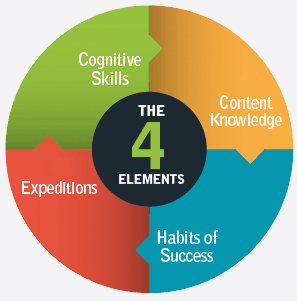 Summit Public Schools is another network with well developed Deeper Learning aspirations (see profile and PD plan). Their four elements of college readiness include:
Summit Public Schools is another network with well developed Deeper Learning aspirations (see profile and PD plan). Their four elements of college readiness include:
- Content knowledge: Empowering students to engage in self-directed learning and develop key habits that are invaluable for college and life success.
- Cognitive skills: Developing the deeper learning, critical thinking, communication and problem-solving skills needed to succeed in today and tomorrow’s workforce.
- Habits of success: Empowering students to engage in self-directed learning and develop key habits that are invaluable for college and life success.
- Expeditions: Immersing students in real-world experiences to help them discover and explore passions and careers, and apply their learning in authentic ways.
Next steps. The Summit framework builds on work by David Conley of College Knowledge and College and Career Ready. He describe skills in four categories: think, know, act, go.
The more of these skills that a student has, the more post-secondary options should be available:
- Key cognitive strategies (think): problem solving strategies, conducting research, interpreting results, and constructing quality work products.
- Key Content Knowledge (know): structure of knowledge in core subjects, the value of career related knowledge and willingness to expend effort to get it.
- Key Learning skills and techniques (act): ownership of learning, and learning techniques such as time management, note taking, memorizing, strategic reading, and collaborative learning.
- Key transition knowledge and skills (go): post secondary aspirations and norms, awareness of postsecondary costs and aid opportunities, knowledge of eligibility and admissions criteria, career awareness, role and identity, and self-advocacy.
The Next Generation Learning Challenges team is working on a framework that synthesizes the best of Conley, Summit, P21, and Deeper Learning by combining basic skills, habits of success, and transition skills. Watch for a May release.
Districts can’t rely solely on graduation requirements and state test scores as a proxy for quality education aims and measures. Students and community members deserve a more compelling and complete set of goals and metrics.
For more, see:
- Q&A: David Conley on College & Career Readiness
- Common Core: A Platform for Equity & Innovation
- 8 Noncognitive Competencies for College and Career Readiness
- Non-cognitive Skills: Bad Name, Really Important
Stay in-the-know with all things EdTech and innovations in learning by signing up to receive the weekly Smart Update.




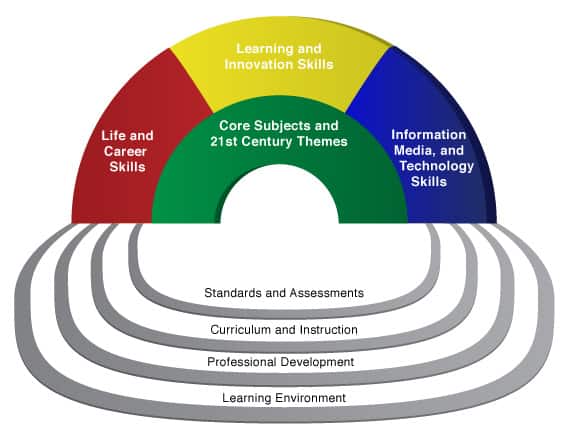
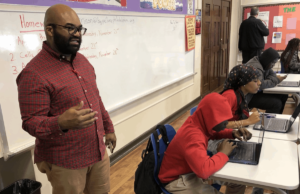
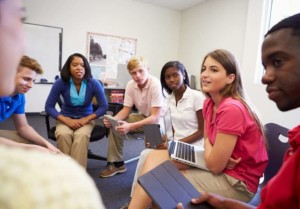

Adebanji A
In a developing world like Nigeria where I reside what do you think secondary school learners should know & how can they meet up with the global challenges in order to be successful. Expecting your response. Thanks
Tracey
I feel high school students should know how to live in a society, where they can function economically, spiritually, socially and academically. Most students can function academically quite well, but the remaining are lacking. I feel they should be incorporated into the learning process or our society will continue to suffer as it is at this present time. No debate, it is what I have observed.
Replies
Erik Day
Thanks Tracey, we agree on most points. Though the idea that "most students can function academically quite well" isn't quite as true as we would like it to be :)